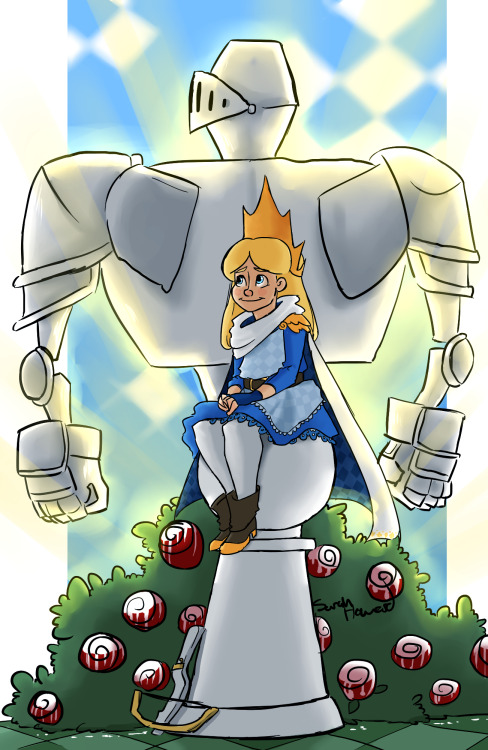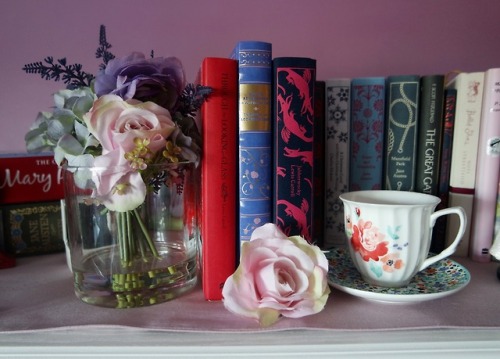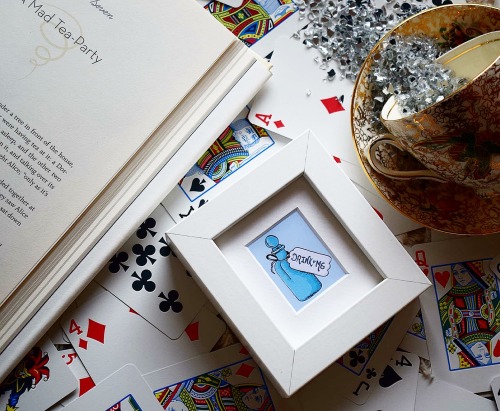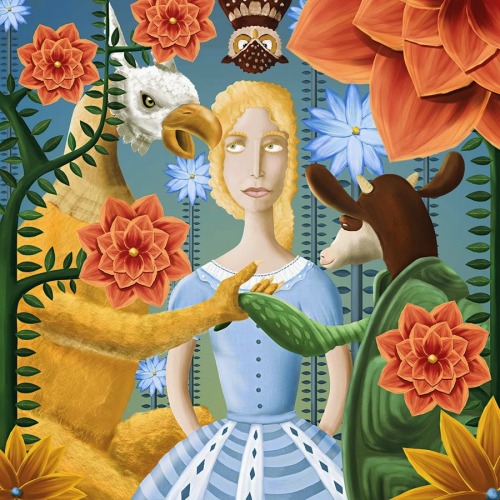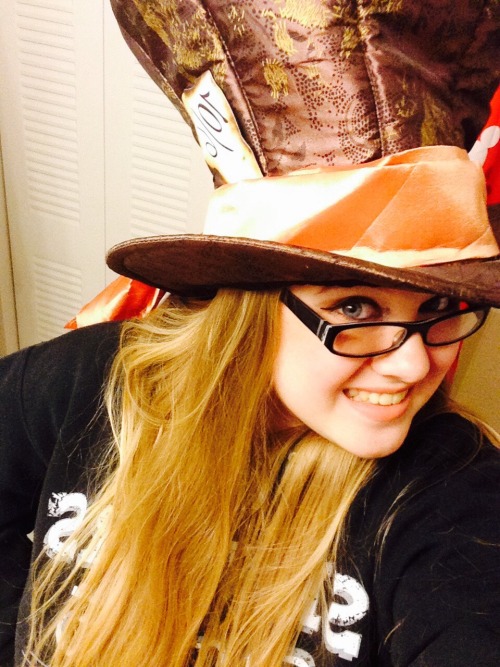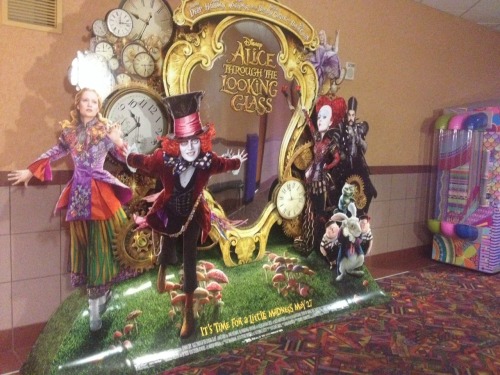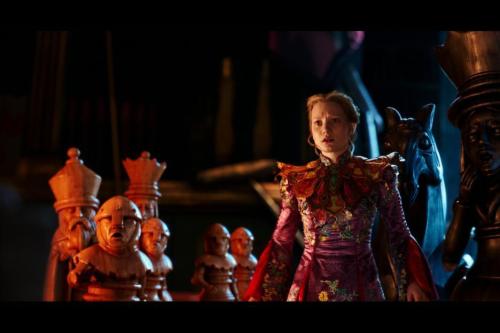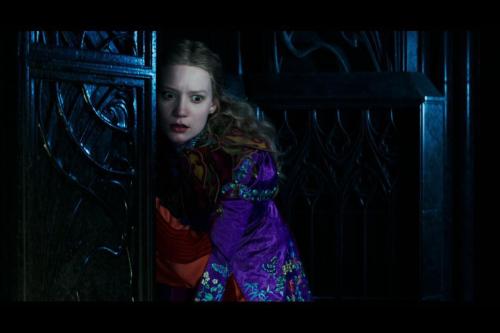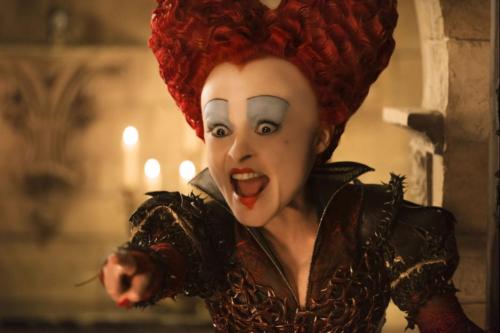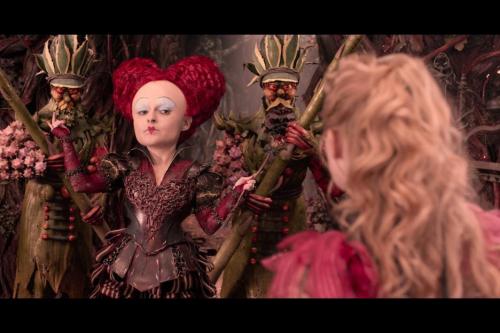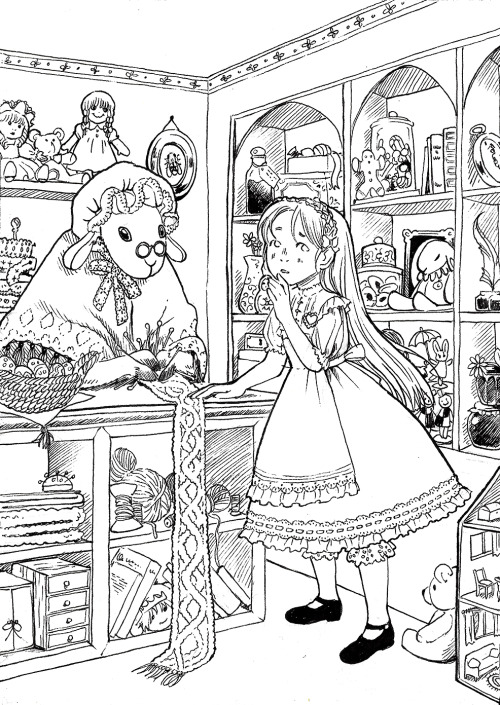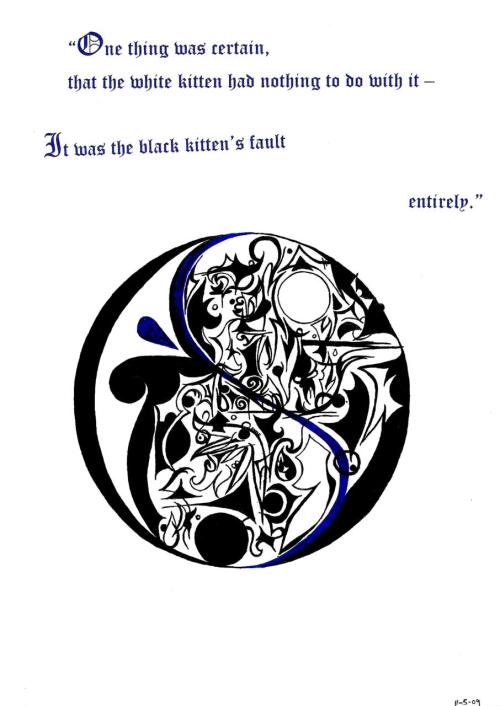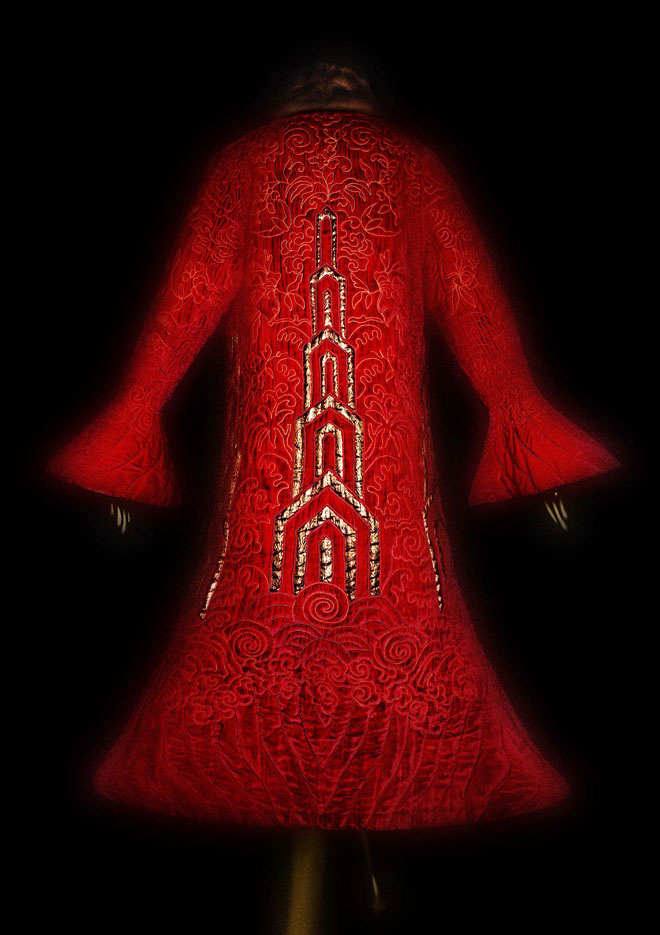#through the looking glass
This is how I feel if I’m experiencing derealization/dissociation. Can y’all relate?
From my edit account on insta - @i.e.saudade
- Six Forty Seven (Instupendo)







Luz and Amity’s Gay Panics
Found a vintage looking Through the Looking Glass and decided to group all my wonderland-themed books together
Post link
Death of Lewis Carroll
14 January 1898
English author Lewis Carroll died in Guildford, England, at the age of 65 on this day in British history, 14 January 1898. Carroll’s real name was Charles Lutwidge Dodgson. He is most remembered for his pair of ‘Alice’ stories, Alice’s Adventures in WonderlandandThrough the Looking-Glass, What Alice Found There. Carroll spent most of his life as a mathematics lecturer at Christ Church, Oxford, and as a gentleman-photographer in some of England’s upper social circles.
Read more about Lewis Carroll’s life here….
http://todayinbritishhistory.com/2014/01/lewis-carroll-dies-guildford-age-65-14-january-1898/
Post link
Look at this lovely photograph taken by Lexi, one of my brand reps; https://www.instagram.com/lexigagan/
Miniature frames, including this Alice In Wonderland one, can be found in my Etsy shop!
Post link
Alice May: The Complete List
Here are all the overviews I’ve written of Alice’s Adventures in WonderlandandThrough the Looking-Glass adaptations throughout the month of May.
I haven’t included the Tim Burton duology, because they’re sequels to the original story, not adaptations.
*Alice in Wonderland (1915 silent film) – Alice played by Viola Savoy
*Alice in Wonderland (1931 Metropolitan Studios film) – Alice played by Ruth Gilbert
*Alice in Wonderland (1933 Paramount Pictures film) – Alice played by Charlotte Henry
*Alice in Wonderland (1949 British-French film) – Alice played by Carol Marsh
*Alice in Wonderland (1951 Disney animated film) – Alice voiced by Kathryn Beaumont
*Alice in Wonderland (1966 BBC TV film) – Alice played by Anne-Marie Mallik
*Alice in Wonderland, or What’s a Nice Kid Like You Doing in a Place Like This? (1966 Hanna-Barbera animation) – Alice voiced by Janet Waldo
*Alice Through the Looking Glass (1966 NBC TV musical) – Alice played by Judi Rolin
*Alice’s Adventures in Wonderland (1972 British film) – Alice played by Fiona Fullerton
*Alice Through the Looking-Glass (1973 BBC TV film) – Alice played by Sarah Sutton
*Alice at the Palace (1981 filmed stage musical) – Alice played by Meryl Streep
*Alisa v Strane Chudes (“Alice in Wonderland”) (1981 Russian animated film) – Alice voiced by Marina Neyolova
*Alisa v Zazerkal (“Alice Through the Looking-Glass”) (1982 Russian animated film) – Alice voiced by Marina Neyolova
*Alice in Wonderland (1983 filmed Broadway production) – Alice played by Kate Burton
*Alice in Wonderland (1985 two-part CBS TV film) – Alice played by Natalie Gregory
*Alice in Wonderland (1985 Anglia Television 5 miniseries) – Alice played by Giselle Andrews
*Alice in Wonderland (1986 BBC miniseries) – Alice played by Kate Dorning
*Alice Through the Looking Glass (1987 Burbank Films animation) – Alice voiced by Janet Waldo
*Alice in Wonderland (1988 Burbank Films animation) – Alice voiced by Olivia Martin
*Něco z Alenky (“Something from Alice”) (1988 Czech film) – Alice played by Kristýna Kohoutová
*Alice in Wonderland (1995 Jetlag Productions animation) – Alice voiced by Bailee Reid
*Alice Through the Looking Glass (1988 British Film) – Alice played by Kate Beckinsale
*Alice in Wonderland (1999 NBC TV film) – Alice played by Tina Majorino
*Alice in Wonderland (2007 opera by Unsuk Chin) – Alice played by Sally Matthews
*Alice’s Adventures in Wonderland (2011 ballet by Joby Talbot) – Alice played by Lauren Cuthbertson
@ariel-seagull-wings,@superkingofpriderock,@faintingheroine,@the-blue-fairie,@amalthea9
I’ve lost count of the number of older works of fiction that some people refuse to take at face value. So many literary critics, when faced with an aspect of a classic book or play that they don’t like, will claim that it’s really a deconstruction or a satire, or that the author didn’t really want to write it that way, but reluctantly gave in to the mores of their time period. Whether it’s because the work is out of step with modern values, or because the tone is inconsistent, or because certain storylines play out differently than the critic wanted them to, or, very commonly, because the work is too romantic, too optimistic, etc., and not edgy and cynical enough, the critics cry “insincere author.”
We see this when people claim that Romeo and Juliet is really a satire or a deconstruction of a love story. Or when they claim that the ending of Wuthering Heights inconsistent with the rest of the book, and probably wasn’t the original ending Emily Brontë wrote, or that Jane Eyre’s happy ending is supposed to ring false and hollow. Or that the ending of Little Women is another false happy ending that’s actually supposed to be disappointing. Or many other examples.
Now I’ve seen this thinking applied to Alice in Wonderland too. Namely to the sentimental poems and gentle real-world scenes that frame both of the two books: the poem “All in the golden afternoon” that opens Alice’s Adventures in Wonderland and the reverie of Alice’s sister that ends the book, and Through the Looking-Glass’s framing poems “Child of the pure unclouded brow” and “A boat beneath a sunny sky” and its opening and closing scenes of Alice playing with her kitten.
I’ve now seen two people (composer Unsuk Chin in her notes on her opera adaptation, and an essay writer whose name I’ve forgotten) argue that these poems and scenes are tonally inconsistent with the rest of the text, and that they’re much more conventionally Victorian in their sentimentality and idyllic portrait of childhood than Alice’s dream adventures are in all their surrealism, humor, dark edges and cultural satire. Unsuk Chin wrote that Carroll was probably forced to give the books a conventional, sentimental framing, or else they would have been too radical for the era, and she suggested that he probably would have written very different opening and closing scenes if he had his own way. I also found an essay targeting the opening and closing poems, which suggested that they should be read as satirical, because their sentimental tone and their framing of the stories as simple, wondrous fairy tales for innocent children is so out-of-step with the books’ actual tone.
That’s an interesting idea that I had never considered before. I always have noticed that difference in tone between Alice’s adventures and the framing poems and scenes. But I’ve still always assumed that the framing sentimentality was sincere on Carroll’s part, and that this was part of the books’ complexity. The idea that it might really be satire never crossed my mind until now.
But to be honest, I still lean toward thinking they’re sincere. In the first place, Carroll’s satirical poems within Alice’s dreams (e.g. “How doth the little crocodile” and “You are old, Father William”) are obviously satire. Gleeful, wicked satire of the popular moralizing poems of the day. Not poems so subtly satirical that most people would think they were straight examples of the sentimental Victorian verses they parody. Secondly, in 1887, Carroll wrote an article called “Alice on the Stage,” in which he gave detailed descriptions of each of the book’s characters and what he thought of their portrayals in a recent stage adaptation. His description of Alice herself is very similar in tone to the framing poems and the affectionate reverie of the older sister at the end of the first book. He waxes very sentimentally about her loving, gentle, courteous nature, and of the innocence, joy, and wonderment of childhood that she embodies. Again, there’s a bit of a disconnect between the angel-child he describes and the character he actually wrote – is this girl, “loving as a dog and gentle as a fawn,” the same one who kicked Bill the Lizard out of the chimney and who remarked “I don’t think it’s a pity at all” when told that the Duchess was sentenced to death? But unless he meant this article as satire too, I can’t imagine after reading it that the books’ openings and endings are insincere in their tenderness.
Besides, as I pointed out, commentators are always trying to explain away aspects of classic literature that they don’t like by saying “It was meant as satire” or “The author was forced to write this by the mores of the time period.”
Still, the idea that the sentimental poems and framing scenes might have been meant as satire, or that they might have been concessions to Victorian taste so the books wouldn’t seem too radical, is worthwhile to consider. They are very different in tone from the surreal and satirical stories they frame, after all. I might personally view that difference as just a part of the books’ complexity (and as reflecting the complex, enigmatic character of the man who wrote them), but it’s worth exploring from every possible angle.
I went and saw Alice Through the Looking Glass last night and was absolutely blown away! If you have the chance to see this movie in IMAX or 3D I definitely recommend you do as it completely heightens your experience. Getting to see the backstories to these amazing characters just adds on to the story we already know. The introduction of Time was another great part. I was personally expecting Time to not be a character I would enjoy and was thoroughly surprised as to how much I appreciated his character. Of course Johnny Depp also does a phenomenal job as usual! Overall I greatly recommend the movie to everyone! Let me know if your going to see it and what parts you enjoyed! If you take any pictures share those too!
Post link
luka’s ttlg route walkthrough
(through the looking glass)
this is a jp walkthrough. it just shows the position of the best answers, so it doesn’t matter if you can’t read it. i don’t think it’s okay for me to copy paste the walkthrough here so i’m just gonna link it! ♡
if clicking links don’t work for you, just copy the link and remove the first part (https://href. li?)
Metropolitan Museum of Art Hosts “China: Through The Looking Glass” Exhibition
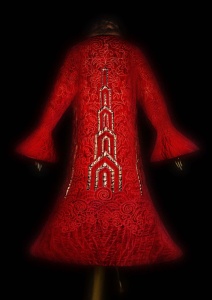
New York – this one of a kind city hosts countless splendid art exhibitions. The one I want to bring to your attention is “China: Through The Looking Glass“, featuring haute couture designs inspired by the magical Chinese tradition, sculptures and a range of films. I’m not sure if it’s still on, so, here is a glimpse of some of the gorgeous itmes on display, at the Metropolitan Museum of Art.
Ev…

